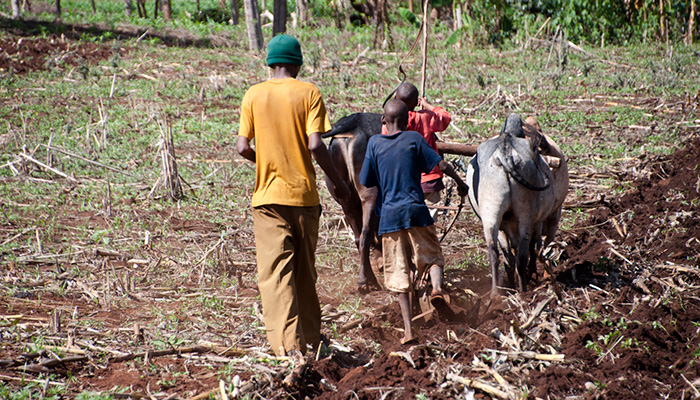MEPs voted yesterday to accept a critical report from the parliament’s development committee on the New Alliance for Food Security and Nutrition, an EU-backed G8 initiative that has seen billions invested by donor governments.
The EU alone has put $1.1bn into the New Alliance, while the UK’s Department for International Development has contributed £600m.
Before the vote, development committee rapporteur and Green MEP Maria Heubuch said if the New Alliance cannot address the severe problems identified, including land-grabbing by private companies indirectly co-funded by the EU, the bloc should withdraw from the initiative.
“Supporting family farmers and smallholders would be the most effective way to fight hunger in many African regions,” she said. “Instead, the EU is contributing its scarce development funding to the New Alliance, which actually undermines sustainable small-scale food production and local food systems.
Launched in 2012, before Russia’s suspension from the G8, the New Alliance aimed to bring corporate investment and donor aid money to lift 50 million people out of poverty in 10 African countries.
It was based on the idea that corporate investment will increase production and in turn automatically improve food security and reduce poverty – a “flawed assumption” that the EU Development Committee said, and the parliament agreed, was concerning.
In exchange for aid and investment, African countries were asked to undertake policy reforms to foster a more business-friendly environment for investors, which include Coca-Cola and Nestle.
The initiative has been widely criticised by farmers and civil society groups, who claim these changes to land, seed and trade rules have benefited big corporations at the expense of smallholder farmers and the environment across the continent.
The UK’s Independent Commission for Aid Impact came to similar conclusions when it looked into DFID’s contributions to the New Alliance, stating the initiative to be “little more than a means of promotion for the companies involved and a chance to increase their influence in policy debates”.
The European Parliament voted to pass the report from the EU Development Committee that outlined these issues by 577 votes to 24 yesterday.
MEPs concluded yesterday that land grabbing as a result of the New Alliance must be halted. They called for independent impact studies on all investments, proper consultation, the establishment of an appeals mechanism and a requirement for private companies to publish publically available annual reports.
They added that farmers should have the right to retain, develop and swap seeds and stressed that agricultural investment policies should support local food systems, rural economies, decent jobs and labour rights.
Environmental safeguards should be established and pesticides and extensive irrigation restricted in order to protect health, the environment and the availability of water for smallholder famers.
Aisha Dowell, food campaigner with campaign Group Global Justice Now, said the MEPs’ findings showed the scheme was “cooked up to benefit big agribusiness rather than to help small-scale farmers of vulnerable communities”.
“There are plenty of ways aid money could be used to improve the livelihoods of these people. But the New Alliance is doing exactly the opposite by facilitating big agribusiness takeover of food systems.”
Christos Stylianides, European commissioner for humanitarian aid and crisis management, spoke to parliament before the vote on Monday.
He said: "The EU is very sensitive towards the smallholder farmers. They play a key role in sustainable agriculture and in combatting hunger and malnutrition. And they are indeed the ones that should primarily benefit from the New Alliance actions.
"We are taking very seriously the concerns being voiced that the New Alliance creates a favourable environment that mainly benefits large private sector companies to the detriment of the smallholder farmers.
"The Commission will discuss and explore with all partners in the New Alliance how to better advance its implementation also in the light of the conclusions and recommendations of this report."














